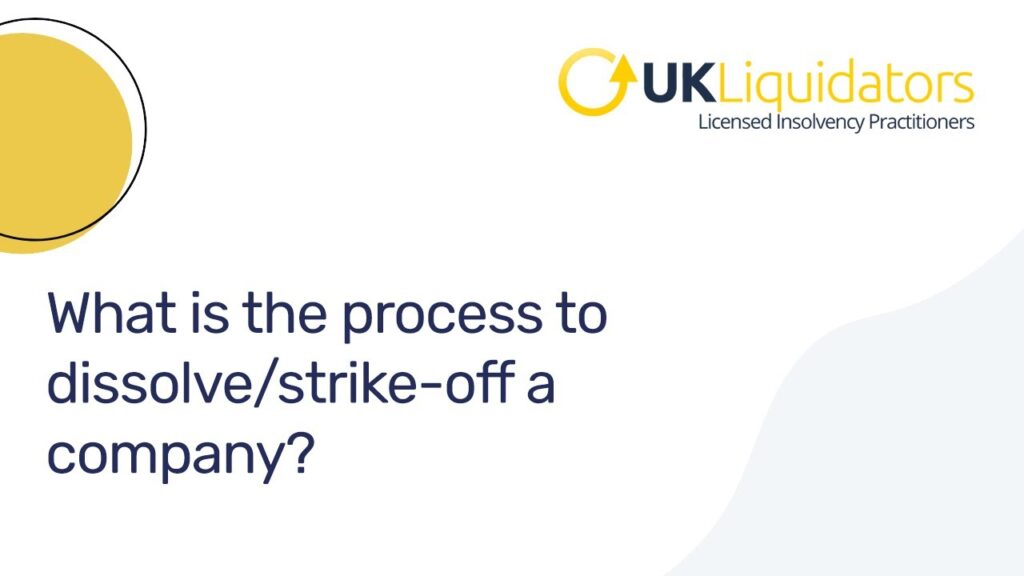Comprehending Compulsory Strike Off: What You Required to Know
Comprehending Compulsory Strike Off: What You Required to Know
Blog Article
Recognizing the Process and Implications of Compulsory Strike Off Under Business Regulation
In the realm of firm regulation, the procedure and ramifications of compulsory strike off hold considerable weight for organizations and their supervisors. Understanding the complexities of why business face such an end result, the meticulous steps entailed in the strike off process, and the far-ranging effects for all events included is vital in navigating the complicated landscape of business governance. As we explore the reasons behind compulsory strike offs, the following procedures, and the subsequent effects, a more clear image emerges of the profound effect it can carry people and entities alike.
Reasons for Compulsory Strike Off
Compulsory strike off under business regulation is launched by the regulatory authorities for specific reasons associated to operational or non-compliance irregularities. The key factor for a company to face required strike off is the failure to submit yearly returns or economic declarations for an extended duration. This non-compliance indicates a lack of openness and adherence to regulative needs, increasing worries concerning the business's economic wellness and responsibility.

Process of Strike Off
Provided the regulative authority's initiation of required strike off for numerous reasons, recognizing the process of strike off is crucial for companies dealing with possible dissolution under business legislation. The process typically begins with the regulative authority sending notifications to the firm's authorized workplace address, notifying them of the impending strike off. It is important for the business to deal with any impressive problems, such as submitting past due documents or clearing up outstanding charges, within the defined duration to avoid dissolution.

Effects for Business
What are the ramifications for firms encountering required strike off under firm law? Companies encountering obligatory strike off may run into numerous considerable implications.
Additionally, the company's possessions at the time of strike off become residential or commercial property of the state, which can lead to financial losses for investors and financial institutions. Shareholders may shed their investments, while creditors might struggle to recuperate any type of arrearages owed to them by the struck-off firm.
In addition, supervisors of the business might deal with disqualification from holding comparable settings in other firms for a specified period (first gazette notice for compulsory strike off). This can stain their professional reputation and restrict their future business chances
Effects for Directors
Encountering obligatory strike off under company law can have extreme ramifications for directors, affecting their future roles in other companies and possibly staining their professional standing. Directors of a company dealing with required strike off might locate it challenging to protect directorial redirected here positions in other firms in the future. On the whole, the consequences of mandatory strike off for directors prolong beyond the specific business in concern, influencing their occupation leads and specialist credibility in the lengthy term.
Staying Clear Of Compulsory Strike Off

Final Thought
To conclude, understanding the process and implications of obligatory strike off under firm regulation is vital for supervisors and companies to Learn More make certain compliance with guidelines. By understanding the factors for strike off, the process involved, and the effects for all events entailed, companies can take steps to prevent undergoing mandatory strike off. It is essential for directors to be proactive in keeping appropriate records and meeting legal responsibilities to stop the danger of strike off.
Provided the regulatory authority's initiation of compulsory strike off for numerous factors, understanding the process of strike off is essential for firms encountering prospective dissolution under firm law.What are the ramifications for firms facing mandatory strike off under firm legislation?Encountering required strike off under business law can have serious ramifications for directors, affecting their future duties in various other firms and possibly tarnishing their professional standing. Supervisors of a company dealing with required strike off may find it challenging official site to secure directorial positions in various other firms in the future.In verdict, comprehending the process and effects of required strike off under company legislation is important for supervisors and firms to guarantee compliance with guidelines.
Report this page